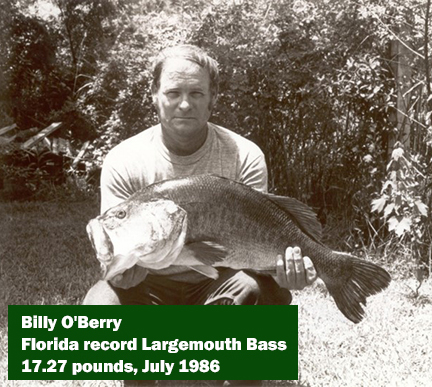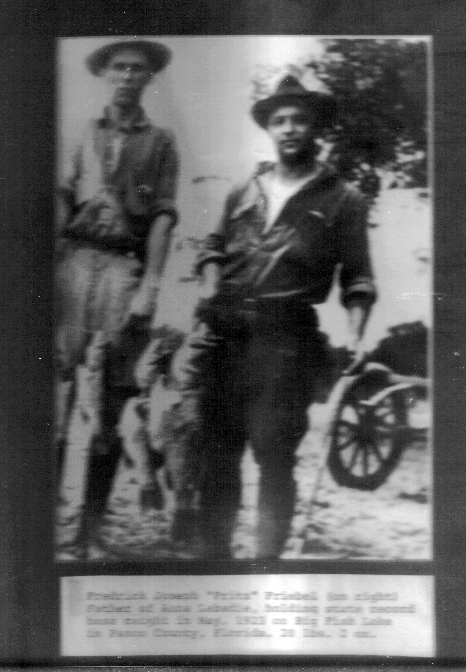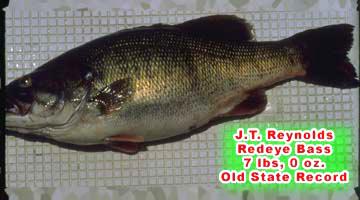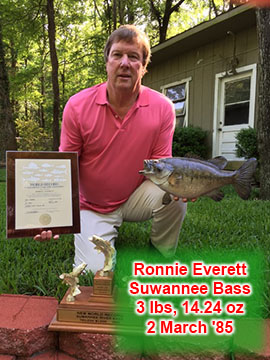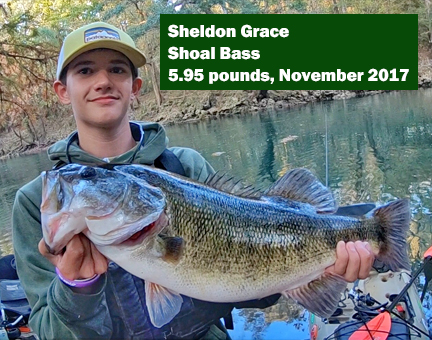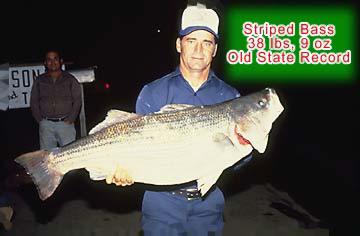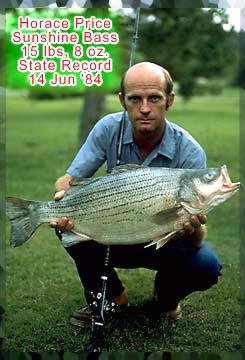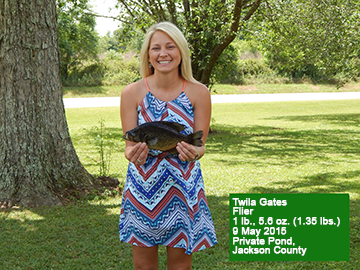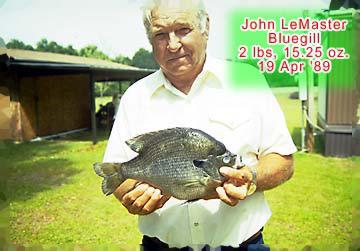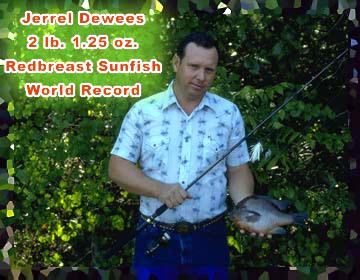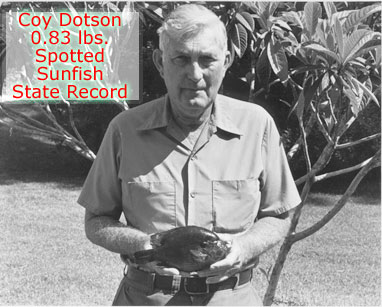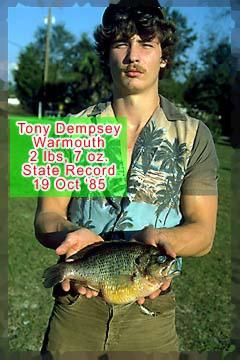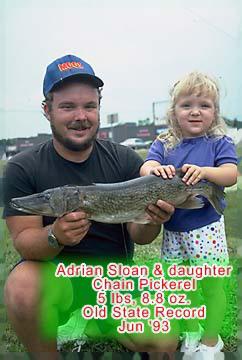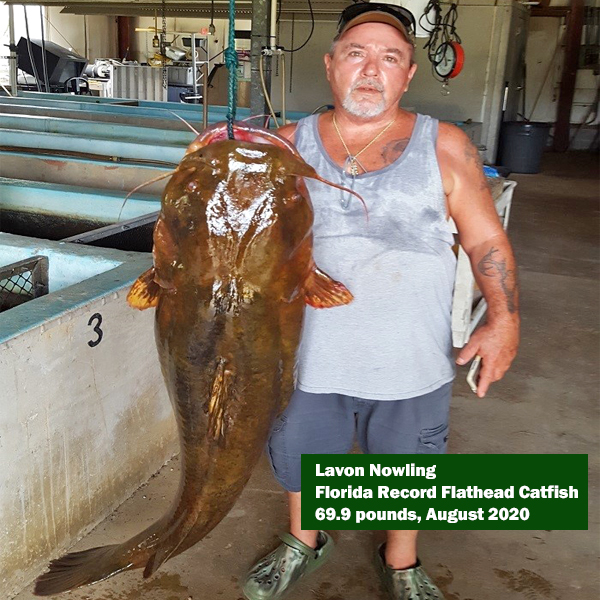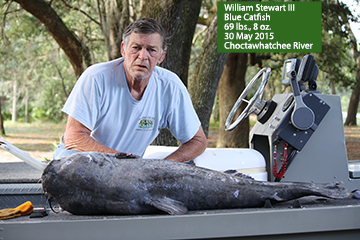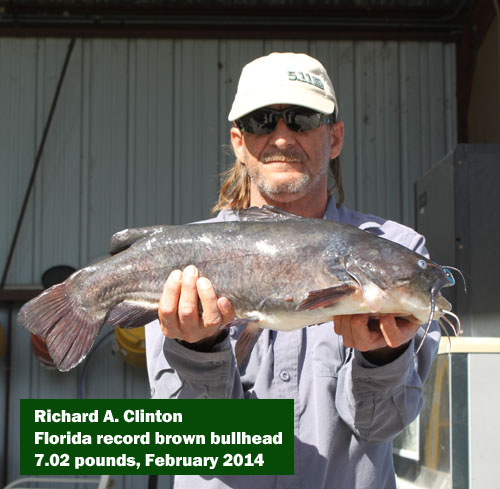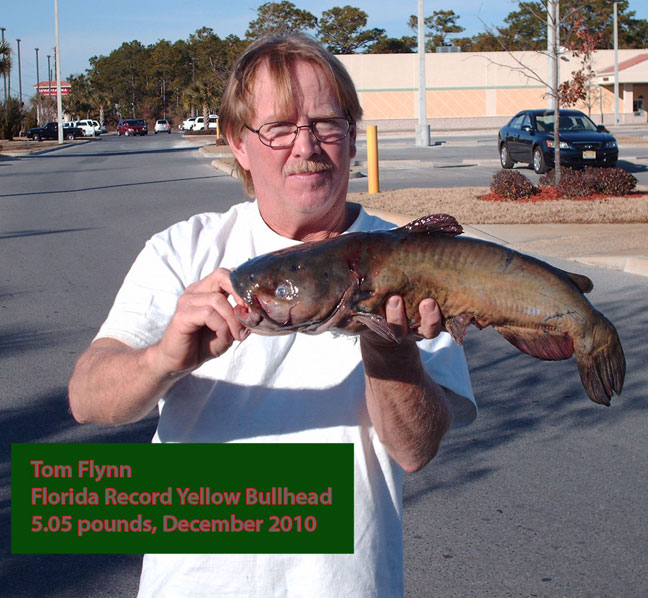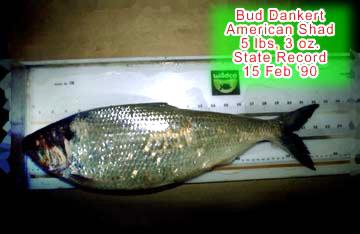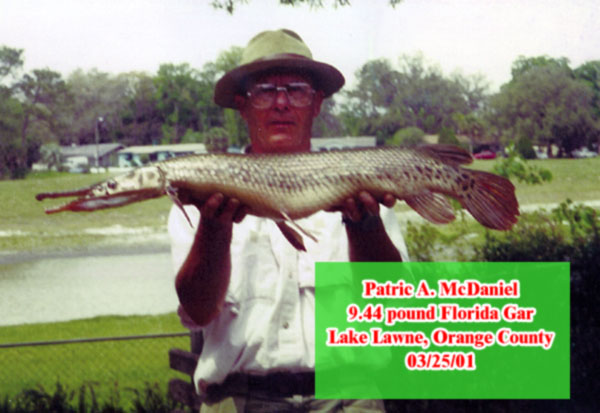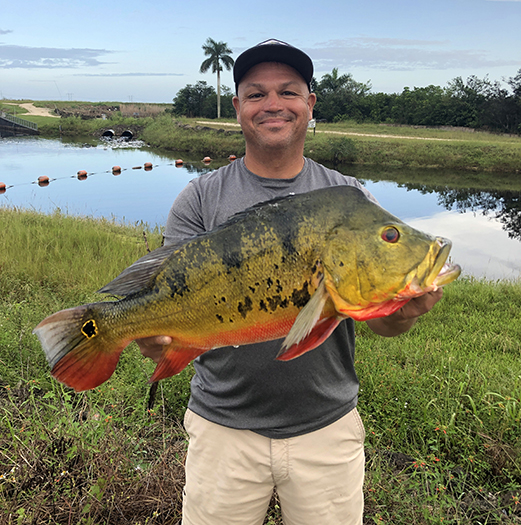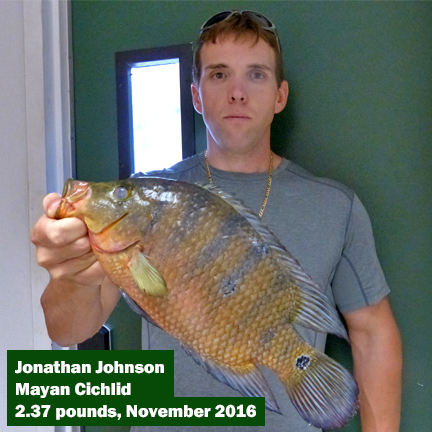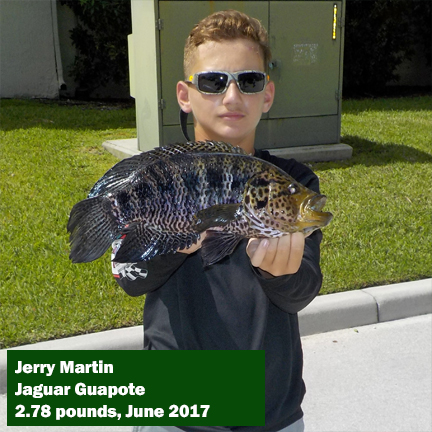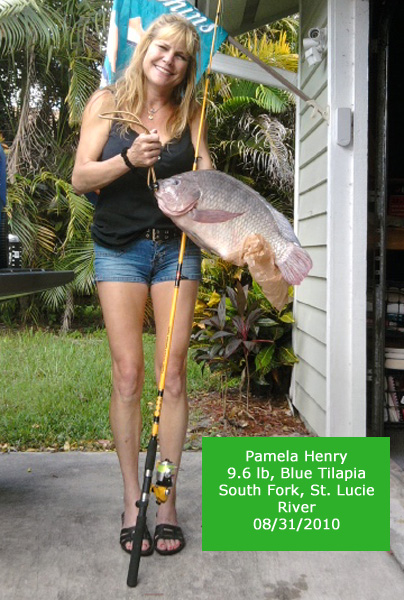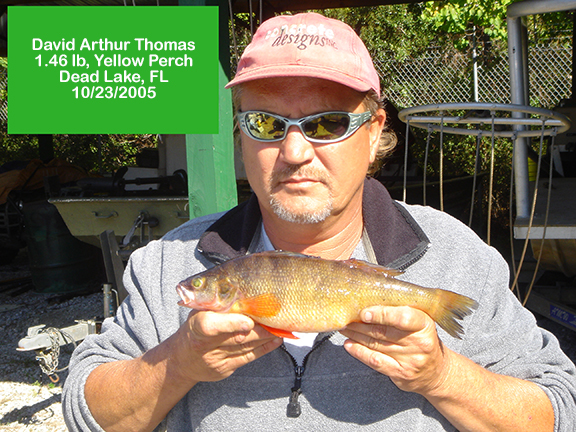Record Fish
Important Information Regarding Potential State Record Fish
- The angler must have a valid Florida freshwater fishing license or be exempt pursuant to s. 379.353, F.S.
- The fish must be caught legally using an active hook-and-line method (bush hooks, snatch hooks, set lines, trotlines, etc. are excluded) in fresh waters of Florida.
- If possible, keep the fish alive. If it is not possible to keep the fish alive, place it in ice water. Avoid freezing the fish because it will dehydrate causing it to lose weight. More information on how to handle and care for fish can be found at: https://www.trophycatchflorida.com/trophycare.aspx
- Before contacting the Florida Fish and Wildlife Conservation Commission (FWC), weigh the fish to determine if a possible state record exists and if possible, take a photograph of the fish on a scale with the weight clearly visible.
How to Certify a State Record Freshwater Fish
- Contact FWC to notify of a potential state record catch and arrange to have an FWC employee witness the official weighing, on a certified scale, and take measurements. When certifying a state record Largemouth Bass, an FWC fisheries biologist does not have to be physically present, and the species can be certified by photograph or video, so long as an FWC employee witnesses official weighing and documentation. For any species other than Largemouth Bass, an FWC fisheries biologist must certify the species by physically witnessing and inspecting the fish.
- The preferred method for contacting FWC regarding a potential state record catch is by clicking here (https://myfwc.wufoo.com/forms/potential-state-record-largemouth-bass/). At waterbodies where possession of a potential state record Largemouth would be over the length or bag limit, this method of contact is required.
- Alternatively, FWC staff can be contacted by telephone.
FWC Regional Offices:
Northwest Region (850) 265-3676
Northeast Region (352) 732-1225
North Central Region (386) 758-0525
Southwest Region (863) 648-3200
South Region (561) 625-5122
- Fill out a Freshwater State Record Fish application and have the application signed by an FWC fisheries biologist. Applications can be obtained from local FWC offices or on the internet at www.MyFWC.com/fishing.
- Mail the completed application to: Florida Fish and Wildlife Conservation Commission, Record Fish Program, 620 South Meridian Street, Tallahassee, FL 32399-1600.
Measurement Standards
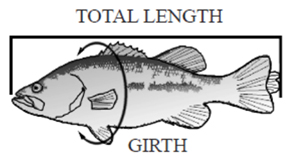
- Measure the fish’s total length and girth to the nearest one-quarter inch. Total length is measured with the mouth closed and tail fin pinched together. Girth is the measurement around the widest part of the fish (see illustration).
- Weight shall be determined on a scale certified by the Florida Department of Agriculture and Consumer Services. A certified scale must meet the requirements of the National Institute of Standards and Technology and is approved by the National Type Evaluation Program. Weighing shall be done by an FWC employee and recorded to two decimal places.
- To replace an existing record, versus tying one, the weight difference must EXCEED the following: (i) nearest one-quarter ounce (0.02 pounds) for fish up to five pounds, (ii) to the nearest one-half ounce (0.03 pounds) for fish more than five pounds and up to 10 pounds, and (iii) to the nearest one ounce (0.06 pounds) for fish more than 10 pounds.
If your fish does not qualify as a state record, the Big Catch Angler Recognition Program rewards anglers who catch a memorable-sized fish. Qualifying anglers receive a colorful citation showing the type of fish caught and a window sticker to proudly display their prowess. To qualify, the fish must be legally caught and exceed the specified minimum length or weight. The catch must be witnessed, and a Big Catch form completed. Details can be found on applications available at many tackle stores, FWC offices, in the Freshwater Regulations Summary, or on the internet at http://bigcatchflorida.com.
More information is provided about the various species on our Freshwater Fishes of Florida pages.
* Uncertified record. Strong evidence exists, but not all the reporting requirements were met.
** Following genetic and other analyses, it is now believed that redeye bass do not exist in Florida. This record was certified prior to those studies being conducted.
